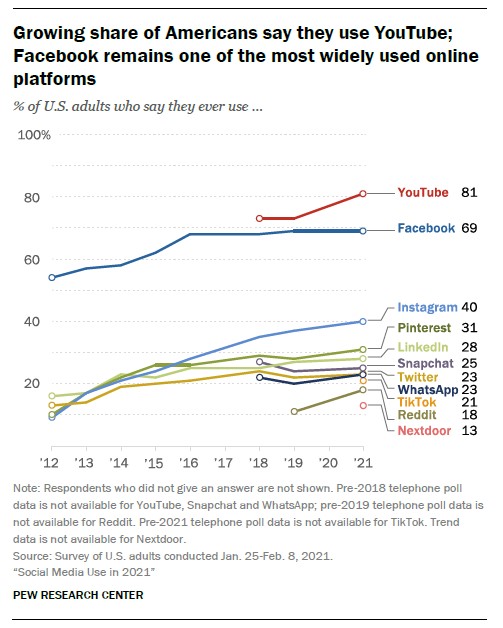In 2019, the Pew Research Center surveyed Americans about their households, revealing a wealth of information regarding family dynamics, economic conditions, and living arrangements. This survey was instrumental in capturing the evolving landscape of American households, as it provided a snapshot of various factors that influence daily life. With the rise of different family structures and economic challenges, understanding these dynamics is more important than ever.
The findings from the survey not only served to highlight the diversity of household types across the United States, but also to illustrate how economic factors, cultural shifts, and generational differences play a pivotal role in shaping these environments. The research gathered by the Pew Research Center reflects the ongoing changes within American society and sheds light on the challenges and opportunities faced by households today.
As we delve deeper into the nuances of these findings, we will explore the various aspects of American households as reported by the Pew Research Center in 2019. This article aims to provide a comprehensive overview of the survey's results, offering insights into the demographics, economic conditions, and the overall well-being of families across the nation.
What Were the Key Findings of the 2019 Survey?
The 2019 Pew Research Center survey on American households unearthed several key findings. Some of the most notable insights included:
- A growing number of single-person households.
- Increased prevalence of multi-generational living arrangements.
- Shifts in traditional family structures.
- Economic disparities affecting household stability.
How Have Household Structures Changed Over Time?
The concept of a traditional household has evolved significantly over the years. In 2019, the Pew Research Center surveyed Americans about their households, revealing a noticeable shift in family dynamics. The rise of single-parent families, cohabitating couples, and same-sex partnerships are now commonplace. This evolution reflects broader changes in societal norms and values.
What Factors Contribute to the Changing Dynamics?
Several factors have contributed to the changing dynamics of American households:
- Economic conditions, including job stability and income levels.
- Cultural acceptance of diverse family structures.
- Increased educational attainment leading to delayed marriages.
- Technological advancements that influence communication and relationships.
How Do Economic Factors Influence Households?
The economic landscape plays a vital role in shaping American households. The 2019 survey highlighted several economic factors that directly impact family life:
- Housing affordability and homeownership rates.
- Income inequality and its effects on family stability.
- Access to healthcare and its implications on family well-being.
What Is the Impact of Economic Disparities on Families?
Economic disparities can lead to significant differences in the quality of life experienced by families. Households with limited financial resources often face challenges such as:
- Inability to afford basic necessities.
- Limited access to education and healthcare.
- Increased stress and mental health issues.
How Do Cultural Shifts Affect Household Composition?
As society continues to evolve, cultural shifts have a profound effect on household composition. The 2019 Pew Research Center survey indicated that acceptance of diverse family structures is increasing. This has led to:
- More same-sex couples raising children.
- A rise in multi-generational households.
- Increased acceptance of single-parent families.
What Are the Benefits of Diverse Household Structures?
Diverse household structures can offer several advantages, including:
- Broader perspectives and experiences within families.
- Stronger support networks among extended family members.
- Greater adaptability in challenging economic conditions.
What Are the Future Implications for American Households?
Considering the findings of the 2019 Pew Research Center survey, it is essential to contemplate the future implications for American households. As we move forward, several trends may continue to shape family life:
- Increased acceptance and support for various family structures.
- Continued economic challenges and their effects on households.
- Technological advancements that further influence communication and relationships.
How Can Policymakers Address Household Challenges?
To support the evolving needs of American households, policymakers must consider the insights gained from the 2019 survey. Potential strategies include:
- Implementing affordable housing initiatives.
- Enhancing access to healthcare and education.
- Developing programs that promote financial literacy and stability.
Conclusion: The Importance of Understanding Household Dynamics
In conclusion, the 2019 Pew Research Center survey of American households provides invaluable insights into the changing landscape of family life. By examining the key findings, economic factors, and cultural shifts, we can better understand the complexities of modern households. As we move forward, it is crucial for policymakers, communities, and families to work together to address the challenges faced by households, ensuring a brighter future for all.
You Might Also Like
Understanding The Importance Of Recording Revenue Transactions And Their Journal EntriesExperiencing The Scene: The Impact Of Staging Versus Reading
Elia's Journey: Riding To The Beach At A Constant Speed
Unlocking The Secrets: Identify Physical And Chemical Properties Of Evidence And Their Impact
Revisiting Neocolonialism: Impacts On Human Development
Article Recommendations


